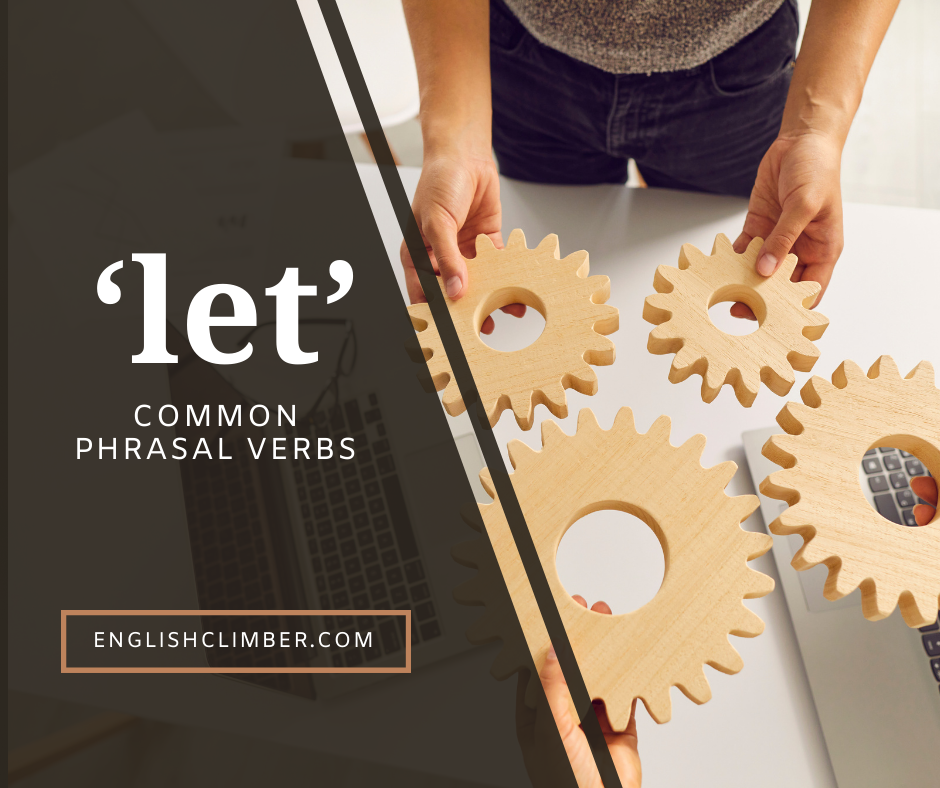Understanding the Difference between “Maybe” and “May Be”
Objective:
By the end of this lesson, you will be able to correctly distinguish between “maybe” and “may be” in sentences.
Introduction:
“Maybe” and “may be”. Have you ever been confused by these two similar-looking phrases?
Although they may look similar, they have different meanings and uses in English.
1. “Maybe” (Adverb):
“Maybe” in one word is an adverb that means “perhaps” or “possibly.”
Here are a couple of examples of sentences using “maybe”:
– Maybe we can go to the park tomorrow. (Perhaps we can go to the park tomorrow.)
– I’m not sure, but maybe it will rain later. (I’m not sur; but it is possible it will rain later.)
2. “May Be” (Verb Phrase):
“May be” is a verb phrase consisting of the modal verb “may” and the verb “be.”
It is used to indicate possibility or permission.
Here are a couple of examples using “may be”:
– She may be late for the meeting (indicating possibility).
– You may be allowed to leave early (indicating permission).
3. Practice:
Here are some sentences with blanks to fill in the correct choice, either “maybe” or “may be.”
– He ___ coming to the party later.
– I’m not sure, but it ___ a good idea to check the weather forecast.
– They ___ able to finish the project by Friday.
Feel free to comment your answers.
4. Common Mistakes:
Here are some common mistakes that learners often make when using “maybe” and “may be” along with explanations:
1. Confusing Spelling:
Mistake: Writing “may be” as one word, such as “maybe.”
Explanation: “Maybe” is a single adverb, while “may be” consists of two words: “may” (modal verb) and “be” (verb).
2. Incorrect Usage of “Maybe” as a Verb Phrase:
Mistake: Using “maybe” to express possibility or permission.
Explanation: “Maybe” is an adverb, not a verb phrase. Use “may be” when indicating possibility or permission.
3. Using “May Be” When “Maybe” Is Needed:
Mistake: Saying or writing “may be” when an adverb like “maybe” is required.
Explanation: “Maybe” is the correct choice when you want to mean “perhaps” or “possibly.”
4. Misplacing “May Be” in a Sentence:
Mistake: Putting “may be” in an adverbial position in a sentence.
Explanation: “May be” is used as a verb phrase and should typically follow a subject or be part of a verb clause.
5. Overusing “Maybe” in Formal Writing:
Mistake: Using “maybe” excessively in formal or academic writing.
Explanation: In formal contexts, it’s better to use alternative phrases like “perhaps” or “possibly” instead of “maybe.”
6. Not Considering Context:
Mistake: Failing to consider the context to determine whether “maybe” or “may be” is appropriate.
Explanation: Context is crucial in choosing the correct phrase, as it helps you discern whether you’re expressing possibility (may be) or uncertainty (maybe).
7. Ignoring Verb Tenses:
Mistake: Not matching the verb tense correctly when using “may be.”
Explanation: Ensure that the verb tense following “may be” matches the context. For example, “He may be late” (present tense) vs. “He may have been late” (past tense).
8. Misusing “May Be” for Expressing Uncertainty:
– Mistake: Using “may be” when you intend to express uncertainty or doubt.
– Explanation: “May be” indicates possibility, while “maybe” expresses doubt or uncertainty.
Homework Exercises:
Here are some additional exercises for more practice.
Exercise 1: Fill in the blanks with either “maybe” or “may be” to complete each sentence correctly.
1. She ___ going to the concert tonight.
2. I’m not sure, but there ___ a chance of rain tomorrow.
3. He ___ able to join us for dinner later.
4. The package ___ delivered by the end of the day.
Exercise 2: Rewrite the following sentences to correct any mistakes in the use of “maybe” and “may be.”
1. “Maybe you can help me with my homework,” he said.
2. She said that he may be coming to the party.
3. Maybe I’ll finish this book by the weekend.
4. It may be a good time to visit the beach today.
Exercise 3: Create three sentences of your own using “maybe” and three sentences using “may be” correctly.
Exercise 4 (Challenge): Write a short paragraph (3-4 sentences) about a future event, using “maybe” or “may be” appropriately to convey possibility or permission.
Assessment:
Here’s a quick 6 questions quiz to practice some more.
Click here for to take the Quiz.
Quiz:
Advanced:
This section is as much for learners as well as for teachers. The following sentences introduce more nuanced uses of “maybe” and “may be” in various contexts. They require students / learners to consider the meaning and implications of each phrase in different scenarios.
Here are some more advanced and complex sentences using “maybe” and “may be” to challenge you / your students:
1. Maybe I could have achieved more if I had pursued a different career path, but I’m content with where I am now.
2. There may be some ambiguity in the contract, so we should consult our legal team for a thorough review.
3. The research findings indicate that there may be a correlation between these two variables, but further investigation is needed for confirmation.
4. She thought that her promotion may be contingent on her successful completion of the project, so she worked diligently to ensure its success.
5. Maybe we can consider this proposal if we receive additional funding, but for now, it’s not feasible.
6. The CEO mentioned that there may be a restructuring of the company in the near future, which could impact our roles.
7. While the weather forecast predicts sunshine, there may be scattered showers later in the day, so bring an umbrella just in case.
8. Maybe he’s right about the benefits of this new software, but I’d like to see some real-world results before making a decision.
Discussions:
Here are some discussion topics that explore the subtleties of using “maybe” and “may be” in English:
1. Context Matters: Discuss how the context of a sentence can greatly influence whether “maybe” or “may be” is the correct choice.
Example: Discuss the sentence “He’s late; maybe he got stuck in traffic.” In this context, “maybe” suggests uncertainty about the reason for lateness due to the context of traffic.
2. Formality and Register: Explore how the formality of a situation can impact the choice between “maybe” and “may be.” Discuss when it’s more appropriate to use “may be” in formal writing or speech.
Example: Compare the formal use of “may be” in a legal contract (“The terms of this agreement may be subject to change”) with the informal use of “maybe” among friends (“Maybe we can meet up for coffee sometime?”).
3. Possibility vs. Uncertainty: Dive deeper into the nuances of these phrases. When do you use “may be” to express possibility, and when do you use “maybe” to convey uncertainty? Share real-life examples.
Example: Explore the difference between “She may be the best candidate for the job” (expressing possibility) and “Maybe she’ll accept the job offer” (expressing uncertainty about her decision)
4. Modal Verbs: Explain that “may be” involves a modal verb (“may”) followed by a verb, and this construction is common in English. Discuss other modal verbs and their uses in sentences.
Example: Discuss other modal verbs like “can,” “could,” and “might” and how they are used in combination with verbs, similar to “may be.”
5. Ambiguity: Explore situations where the choice between “maybe” and “may be” can introduce ambiguity into a sentence. How can careful phrasing help avoid misunderstandings?
Example: Analyze the sentence “Maybe we should help John move the piano.” Does it mean “perhaps we should help” or “we’re not sure if we should help”? Clarify how phrasing can remove ambiguity.
6. Politeness and Permission: Discuss scenarios in which “may be” is used to request or grant permission, such as “May I be excused?” or “You may be allowed to enter.” Explore the politeness aspect.
Example: Role-play a polite request using “may be,” such as “May I be excused from class early today?” Discuss how this differs from simply saying “Maybe I can leave class early.”
7. Idiomatic Expressions: Talk about idiomatic expressions and phrases that include “maybe” or “may be.” For example, “Maybe so” or “It may be the case.” Discuss their meanings and usage.
Example: Explore idiomatic expressions like “Maybe so” (indicating agreement) or “It may be the case” (suggesting a possibility). Discuss when these are used.
8. Common Mistakes: Encourage students / learners to share common mistakes they’ve noticed or made with these phrases and discuss ways to avoid them.
Example: Share common mistakes, such as using “maybe” in formal writing or misplacing “may be” in a sentence, and discuss strategies to avoid them.
9. Role Play: Have students engage in role-playing scenarios where they must use “maybe” and “may be” appropriately, such as in negotiations, job interviews, or customer service interactions.
Example: Role-play a scenario where a customer is asking for a discount, and the salesperson must use “maybe” and “may be” appropriately to negotiate the terms.
10. Real-Life Applications: Discuss real-life situations where a choice between “maybe” and “may be” can have significant consequences, such as in legal documents, scientific research, or business contracts.
Example: Discuss the critical importance of precision when using “may be” in scientific research. For instance, “This chemical reaction may be the key to a breakthrough” has significant implications.
These discussion topics will not only help students / learners understand the subtleties of using “maybe” and “may be” but also encourage critical thinking about language usage in different contexts.


I took the assessment and scored 5 out of 7. Maybe you could see if the bonus question grants me the 2 remaining points?! 😆
That was a very thorough lesson! I may be waiting for another one *smile*